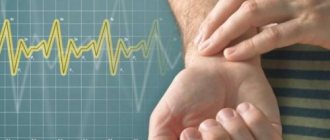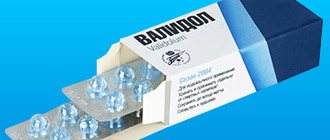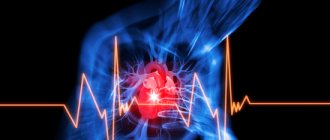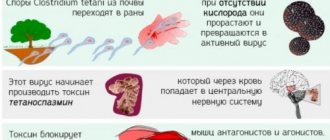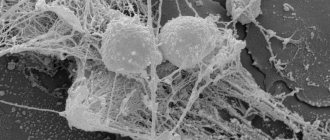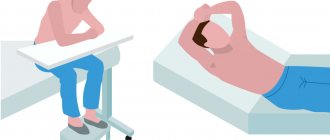Everyone experienced interruptions in the functioning of the heart in the form of rapid heartbeat and lack of air. This happens in healthy people during severe anxiety, fear and other emotional shocks. This is a normal response of the cardiovascular system to stress. But such symptoms do not always have physiological causes. During physical activity, the heart begins to beat faster in all people, and everyone knows that this is how it should be. But if there is not enough air during the heartbeat, and this repeats periodically even with minor exertion, you need to be examined. In such cases, the cause is most likely a disease.
What to do first
To alleviate the condition yourself, you need to do the following:
- stop physical work, try to calm down;
- open a window to let in fresh air or go outside;
- put something cold on your forehead (a wet napkin or towel, a bottle of water);
- relax, take a comfortable position;
- breathe deeply, with quick inhalations and slow exhalations;
- you can try to reduce your heart rate by coughing;
- You need to hold your breath for a few minutes and tense your abdominal muscles;
- induce vomiting by pressing on the root of the tongue;
- immerse your face in cold water;
- apply strong and sharp pressure at the angle of the lower jaw;
- take drops (Corvalol, valerian or Valocordin);
- if a person has difficulty breathing, you need to give him an oxygen bag;
- if the condition does not improve, call an ambulance.
If there is not enough air and your heart rate increases, you need to consult a therapist or cardiologist. Perhaps the patient will be referred to another specialist, since these symptoms are not always characteristic of cardiac diseases.
Sedatives will help you calm down and reduce your heart rate.
Should I worry if unpleasant symptoms occur?
In most cases, such symptoms are not life-threatening and go away quickly without additional medical intervention. The most common and relatively safe deviation is a condition where the ventricle contracts prematurely. This causes a slight delay in the next beat, which is felt as a “freezing heart”.
“Frozen heart” is not a figure of speech, but the body’s reaction to specific stimuli
Typically, shortness of breath combined with cardiac arrest occurs after:
- drinking alcohol;
- experienced stressful situation;
- performing heavy physical exercise;
- taking a high dose of caffeine.
This reaction of the body to the above factors is considered normal and does not require any drug treatment. It is enough to give up heavy loads and spend at least a day in complete solitude and tranquility.
How to treat
Frequent heartbeat and at the same time lack of air is a manifestation of another disease. To get rid of tachycardia with shortness of breath, it is necessary to treat primary pathologies. To do this, you need to be examined by a cardiologist or therapist and find the cause of such symptoms. You may need to consult other specialists (neurologist, endocrinologist). In some cases, drug treatment is not required; it will be enough to change your lifestyle, diet, and drink soothing herbal teas and infusions.
Symptomatic treatment
Medicines may be prescribed to lower your heart rate. Usually two groups of drugs are used:
- Antiarrhythmic drugs (intravenous and oral). They not only reduce the heartbeat, but also prevent the occurrence of tachycardia attacks. These include Verapamil, Propranolol, Adenosine, Flecainide and others. You cannot take the pills on your own; they are selected individually, taking into account other diseases and contraindications.
- Sedatives (calming). They help especially effectively if rapid heartbeat is associated with disturbances in the functioning of the nervous system. The most well-known drugs in this group: valerian (tablets, tincture), Persen, Novopassit, Deazepam and others.
If the cause of palpitations is serious pathologies of the cardiovascular system, antiarrhythmic drugs, oral or intravenous, are prescribed
Heart failure
Shortness of breath and tachycardia are companions of heart failure. The goal of treatment is to reduce symptoms, limit disease progression, and increase life expectancy. Particular difficulties arise in the treatment of cardiac cough.
Treatment of heart failure is complex and includes:
- Regime and diet. With the help of a diet, they improve the nutrition of the heart muscle and reduce the volume of fluid in the body. It is important to limit salt and liquid intake, give up alcohol, and include more vitamins and protein foods in your diet.
- Drug treatment. Several groups of drugs are prescribed: ACE inhibitors, cardiac glycosides, beta blockers, potassium-sparing diuretics, aldactone antagonists, vasodilators, calcium channel blockers, anticoagulants.
- Surgical intervention. Without surgery, it is often not possible to achieve positive results. The most common procedure is to install a pacemaker.
Vegetovascular dystonia
With VSD, patients have a lot of complaints, including difficulty breathing and rapid heartbeat. She is being treated by a neurologist. Depending on the symptoms, other specialists may also be involved: cardiologist, therapist, endocrinologist, urologist, gastroenterologist.
Basic principles of therapy for vegetative-vascular dystonia:
- Observe the daily routine, work and rest.
- Sleep at least 8 hours a day.
- Eat properly. The products must contain all the necessary nutritional elements. You need to give up processed foods, fatty, smoked, hot, spicy, canned foods, salt, and strong drinks with caffeine.
- Avoid stress.
- Do auto-training.
- Engage in light sports (swimming, walking), therapeutic exercises.
For VSD, physiotherapy is effective, including antiarrhythmic, vasoconstrictor or vasodilator electrophoresis, as well as relaxing and tonic baths.
For hypertensive form, alcohol tinctures are used:
- motherwort,
- valerian,
- peony,
- hawthorn.
The most famous and often used remedy for palpitations is alcohol tincture of valerian.
For VSD of the hypotonic type:
- infusion of Schisandra chinensis;
- infusion of immortelle;
- tincture of ginseng root;
- tincture of enticement.
Medicines are prescribed in extreme cases if non-drug methods do not help. This is especially true for children and adolescents. Adults are prescribed tablets for symptomatic treatment:
- in the hypertensive form - adrenergic blockers (Bisoprolol, Anaprilin);
- for stress, anxiety, panic attacks - antidepressants, tranquilizers;
- drugs that stimulate cerebral circulation (Cavinton, Tanakan, Oksibral).
What diagnostics do you need to undergo?
If the patient notices the appearance of tachycardia and shortness of breath at rest or accompanied by other symptoms, you should consult a doctor as soon as possible.
The first thing the doctor will do is take a thorough history. It is important to find out under what circumstances the patient notices symptoms (physical activity, stress, rest), whether there is heart pain, cough, general weakness, whether the person is taking any medications. Next, the doctor examines the patient in detail, including a visual examination of the mucous membranes and skin, measures pulse, blood pressure, palpation and auscultation.
Laboratory tests include a general blood and urine test, blood biochemistry; from instrumental - ECG, X-ray of the lungs. If necessary, an additional ultrasound of internal organs is performed and a consultation with specialists is prescribed. A carefully collected anamnesis and a properly selected examination are the main conditions for making a diagnosis.
When should you see a doctor if you have shortness of breath?
Important! If you experience unexplained shortness of breath, especially if it comes on suddenly and gets worse, seek medical help right away!
Get emergency medical help if your shortness of breath is accompanied by dry wheezing, chest pain, fast or irregular heartbeat, severe swelling of the feet or ankles, skin discoloration (blue fingers or lips), nausea, increased sweating, confusion, fever, chills and cough, manifests itself at rest. These symptoms may be signs of life-threatening conditions - anaphylactic shock, heart attack, pulmonary embolism, COVID-19.
If you have diseases accompanied by chronic shortness of breath, be sure to consult with your doctor, know the algorithm of actions during an exacerbation of your condition, and if chronic shortness of breath significantly worsens, also seek emergency medical help.
Help that should be provided to the patient independently
Before the ambulance arrives, the patient should provide first aid independently. At the first sign of spasms, there are several remedies to normalize the condition.
- Create complete silence and peace for the patient.
- Freshen the air in the room.
- Apply ammonia.
- Give me some water to drink.
If the patient's condition worsens, it is necessary to give a small clap on the back and wait for the specialists to arrive.
Only after a correct diagnosis can qualified treatment be carried out. The patient’s health depends not only on the treatment and consultation of the doctor, but also on the patient himself. If you consult a doctor in a timely manner and take medications according to the prescribed schedule, all symptoms will soon disappear completely.
Causes of palpitations and shortness of breath not related to heart disease
Most often, shortness of breath with an abnormal heartbeat is caused by heart disease, but in some cases the causes of unpleasant symptoms are less obvious.
Taking medications
Medicines used to treat asthma and thyroid disorders can cause heart palpitations and shortness of breath. These side effects occur especially often at night. It is necessary to make an appointment with your doctor to prescribe a different type of pill with fewer side effects. But in no case should you stop taking medications on your own, or select analogues on the Internet.
Hormonal imbalances
Pregnancy, menopause, and irregular periods can cause unexplained weakness, rapid heartbeat, and shortness of breath. Unpleasant symptoms disappear as soon as hormone levels normalize. In rare cases, hormonal therapy is prescribed.
Breathing exercises will help get rid of shortness of breath that occurs during a panic attack
Panic attacks
If shortness of breath and rapid heartbeat are accompanied by a feeling of anxiety against a background of constant stress, a panic attack may occur. This condition is not life-threatening and can occur periodically in every healthy person.
But if panic attacks occur regularly, then you should seek help from a psychotherapist. It is enough to take a course of cognitive behavioral therapy, during which the doctor, in the form of persuasion, will help you give up negative thoughts or replace them with positive beliefs. There are also special breathing techniques that will help quickly equalize your heart rate and prevent the development of shortness of breath. In severe cases, your doctor may prescribe antidepressants that regulate serotonin levels.
Leading an unhealthy lifestyle
Some doctors believe that chronic fatigue, constant use of tobacco, alcohol or drugs (even mild ones) can cause rapid heartbeat and shortness of breath. It is enough to give up bad habits and the unpleasant symptoms will go away without additional treatment.
It must be remembered that, despite the fact that neither shortness of breath nor rapid heartbeat themselves pose a direct threat to life, they can be quite an alarming signal. Isolated cases of shortness of breath do not indicate illness in the body, but a constant lack of air and abnormal heartbeat is a direct path to the family doctor’s office. Only a specialist will be able to correctly identify the cause of unpleasant symptoms, make the correct diagnosis and prescribe treatment to improve the patient’s health.
Diseases of the lungs and bronchi
The cause of difficulty breathing and lack of air often lies in pulmonary and bronchial pathologies. Moreover, almost all lung diseases manifest themselves through shortness of breath (expiratory, inspiratory, and mixed):
- acute and chronic bronchitis;
- chronic obstructive pulmonary diseases;
- pneumonia;
- bronchial asthma;
- tumors;
- tuberculosis;
- emphysema;
- polio.
Usually shortness of breath develops in parallel with cough, weakness, hemoptysis and other symptoms of pathologies of the respiratory system.
